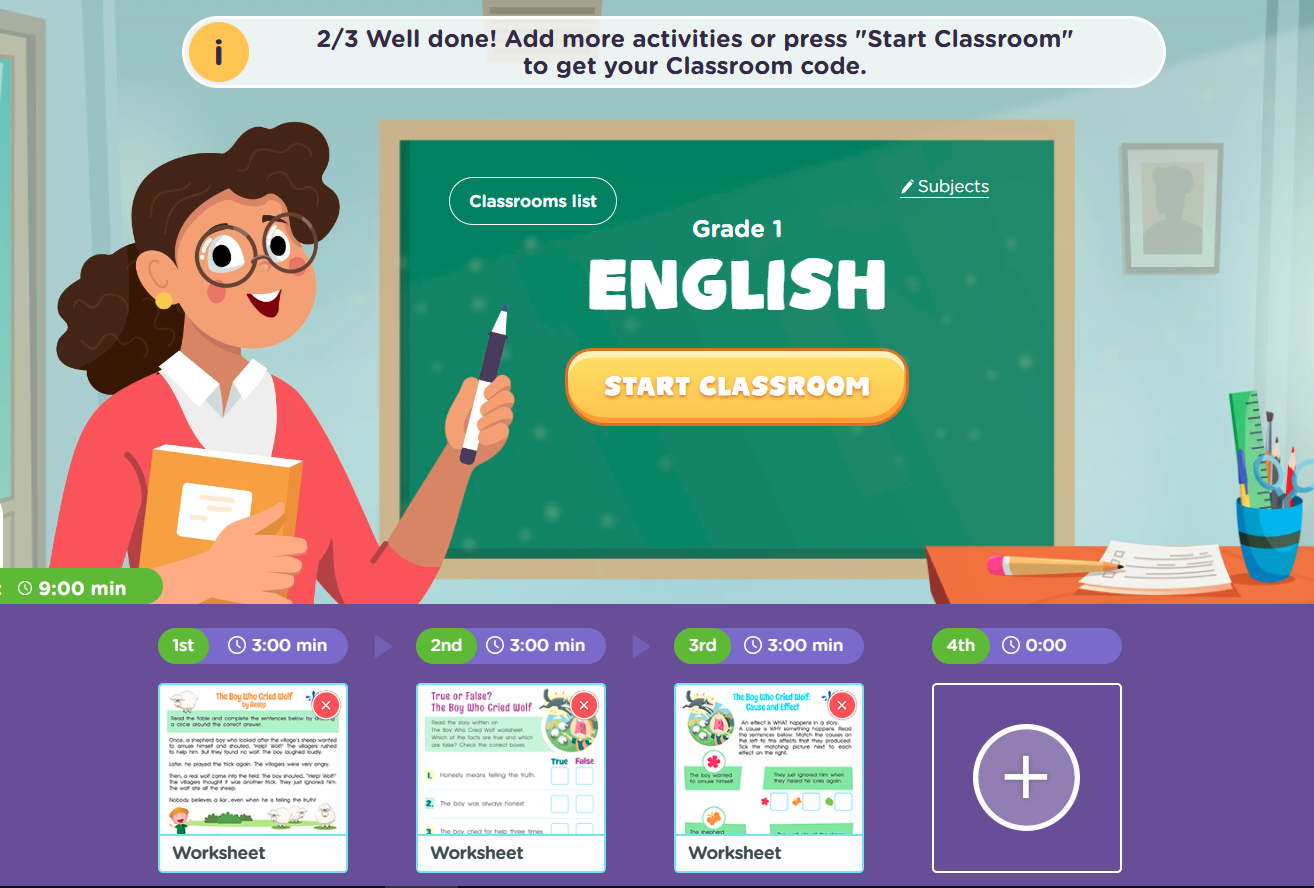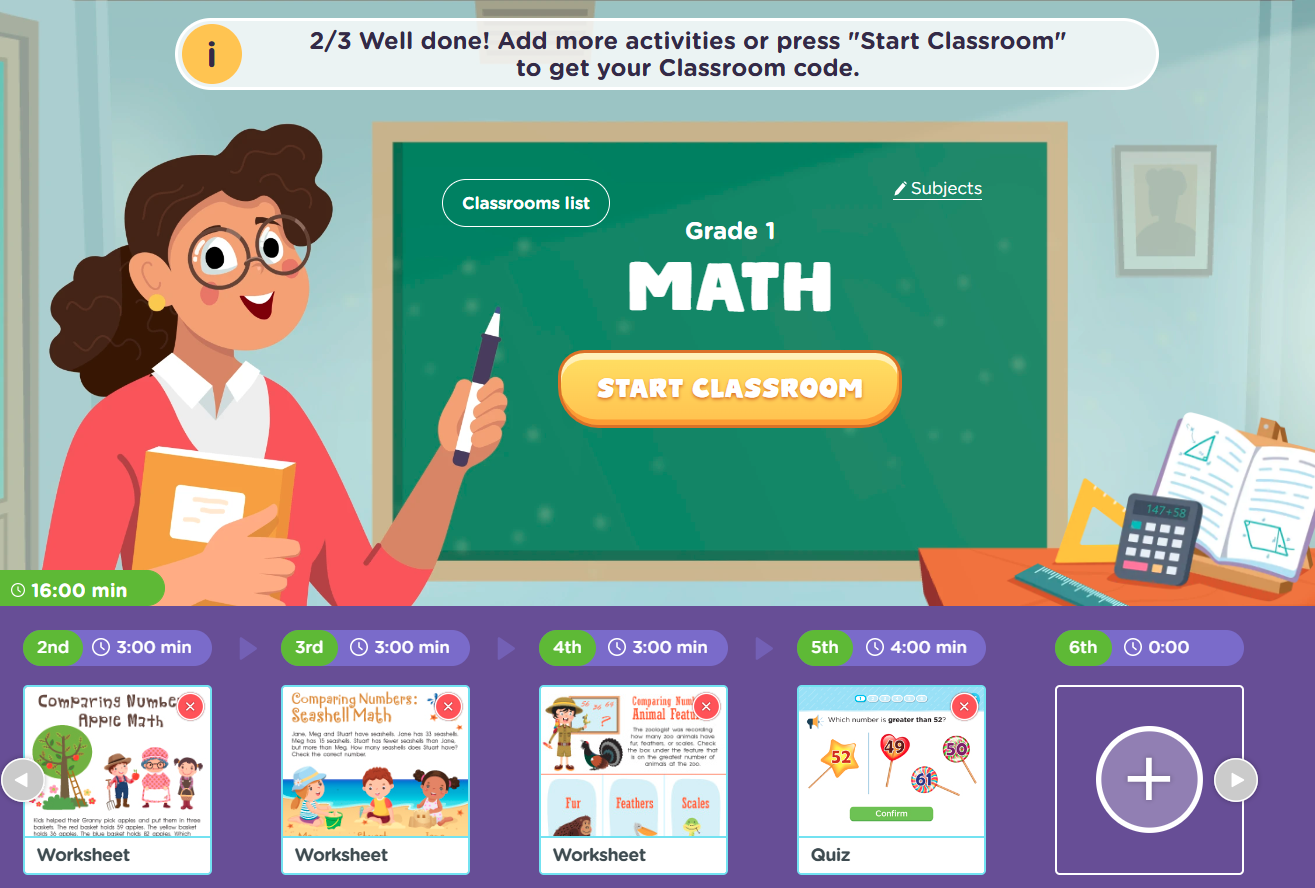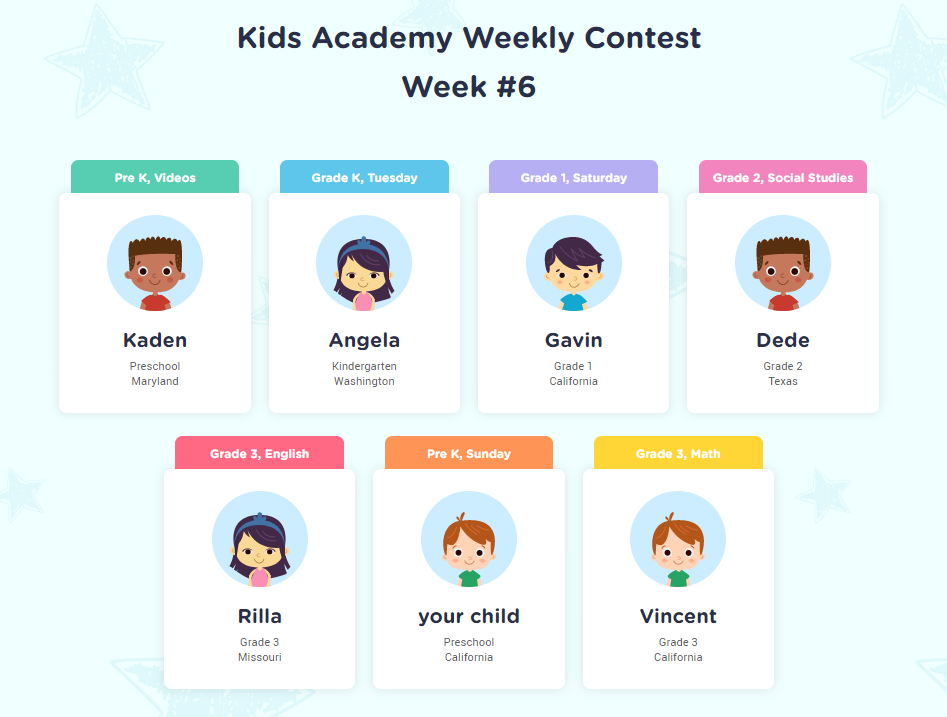Daily Knowledge Boost with Kids Academy: Cross Curricular Reading Practice for 1st Grade
Aug. 16, 2024
Reading comprehension is a foundational skill that kids will need for life. We read even when we complete math problems, learn history, or go about our daily lives. That’s why it’s so crucial for children to be exposed to reading whenever possible. The more practice they have, the better their fluency and comprehension becomes, which translates into success in academics and life.
Cross-Curricular Reading Opportunities for 1st Graders
Our knowledge boost today is focused on the idea that reading is everywhere and is necessary for success in all subject areas as well as in life. Keep reading to discover a hand-picked collection of ELA, math, social studies, and science lessons that are ready-made and support learners’ reading comprehension.
All lessons featured below are found on the interactive Kids Academy Classroom interface, which enables children to complete each activity digitally and provides parents with an informative progress reporting system. To learn more about Kids Academy Classroom, read this quick Classroom Guide.
1. English Language Arts
Lesson: “Messages and Lessons in a Text”
As first graders develop fluency in reading, they must understand what the text is about and what they can learn and take away from it. This lesson helps to develop reading comprehension and tasks children with thinking more deeply about texts.
Activities Overview:
- 'The Boy Who Cried Wolf' Worksheet: Kids will read this classic fable and recall important events from the story.
- 'True or False? The Boy Who Cried Wolf' Worksheet: Did that really happen? This worksheet guides learners to think more closely about what they read.
- 'Cause and Effect: The Boy Who Cried Wolf' Worksheet: This activity helps readers connect character actions to outcomes by thinking about cause and effect.
Extension Activity
Did your little reader love “The Boy Who Cried Wolf”? Treat your child a full-length version with this read-along children’s book! Don’t forget to hit pause to ask questions as the story progresses. At the end, ask him or her if how the story in the book was similar or different to the one from the lesson.
2. Math
Lesson: Comparing Numbers Word Problems
Word problems are tough, but they help kids gain number sense and relate the operations they learn to real life scenarios. Each of the activities in this lesson task learners with reading the problems as they compare quantities.
Activities Overview:
- 'Cupcake Day' Worksheet: Who baked more cupcakes? This cute worksheet prompts learners to read the scenario and compare numbers to find the answer.
- 'Apple Math' Worksheet: This adorable worksheet explains how kids sorted apples they picked into three baskets. Which basket holds the fewest?
- 'Seashell Collectors' Worksheet: This challenging activity requires your reader’s fullest attention as he/she works through math vocabulary like the words “fewest” and “more than”.
- 'Animal Features' Worksheet: Help the zoologist do his job by reading the problem and selecting the feature that most animals there possess- fur, feathers, or scales!
- 'Compare Two-Digit Numbers Without Pictures' Quiz: It’s time to check how your little learner is doing! This quiz checks for understanding by assessing their knowledge without the help of illustrations.
Brain Break Fun!
Sing along with Jack Hartmann while reinforcing the terms “more” and “less”. This fun singalong song will have your first grader wanting to dance and sing, all while comparing numbers! This is also a great opportunity for a quick warm up – get up and dance to the catchy tune!
3. Social Studies
Lesson: History Around the World
History and world cultures are so much fun to read about, but comprehension is required to enjoy it and gain knowledge. Practice reading comprehension by exploring intriguing characters from Greek mythology and seven wonders of the ancient world.
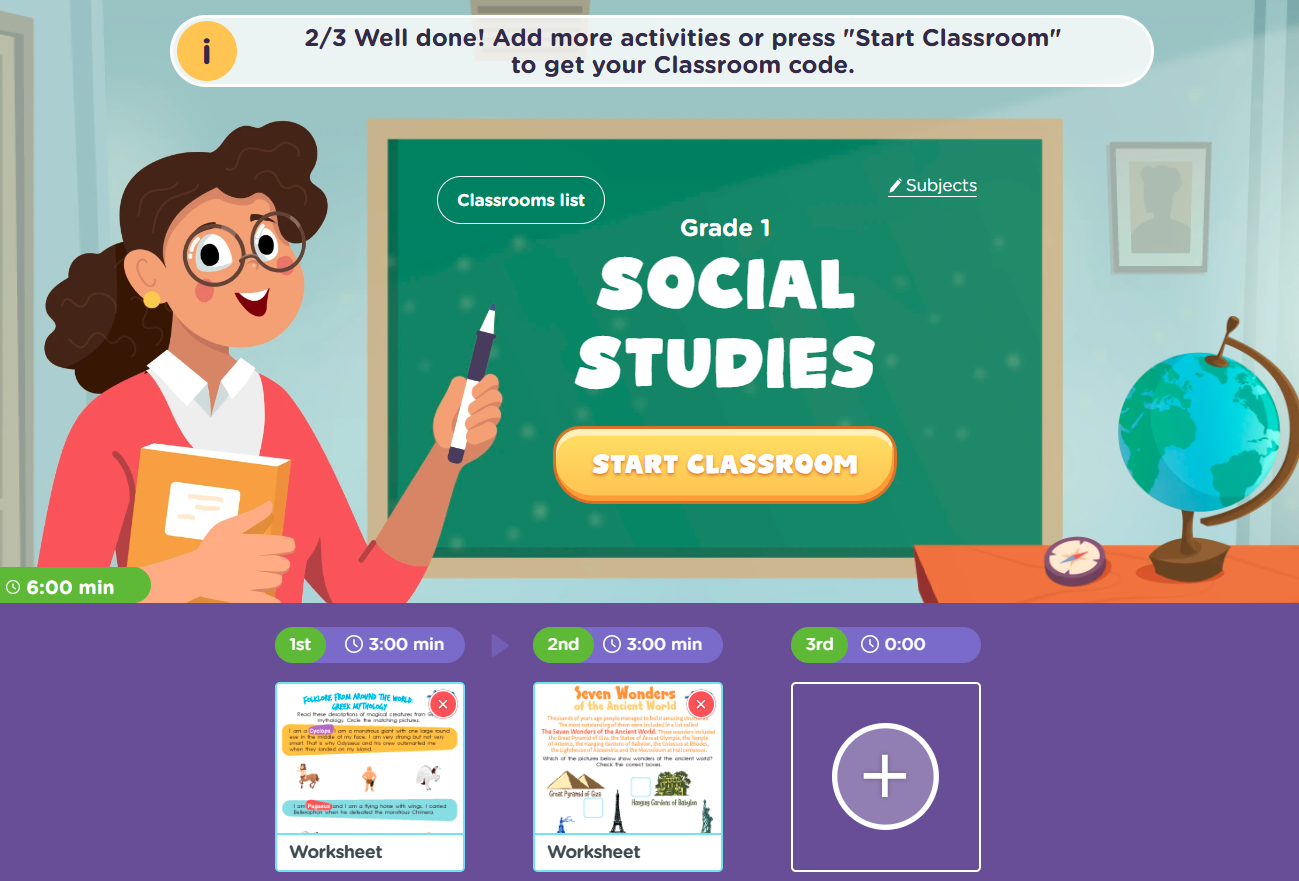
- 'Greek Mythology' Worksheet: Your child will love reading about the mythical creatures that make up Greek mythology, such as a Centaur and a Cyclops and matching their descriptions with pictures.
- 'Seven Wonders of the Ancient World' Worksheet: Can your kid match the famous ancient structures with those named in the paragraph at the top of the page? Practice reading while learning about amazing ancient statues and buildings.
Extension Activity
Children love learning about Greek mythology because the creatures and stories are fascinating! It’s also important to learn about since mythology is referenced in much of Western literature and influenced history in many big ways. Learn more about the Greek gods and goddesses using this informative video from Twinkl!
4. Science
Lesson: Observing Our Moon
Kids are naturally drawn to science because of their endless curiosity and wonder at how the world works, but science isn’t only about experiments. Little learners must master reading to learn facts and critical scientific vocabulary. This lesson requires reading and responding to questions about moon facts and phases.
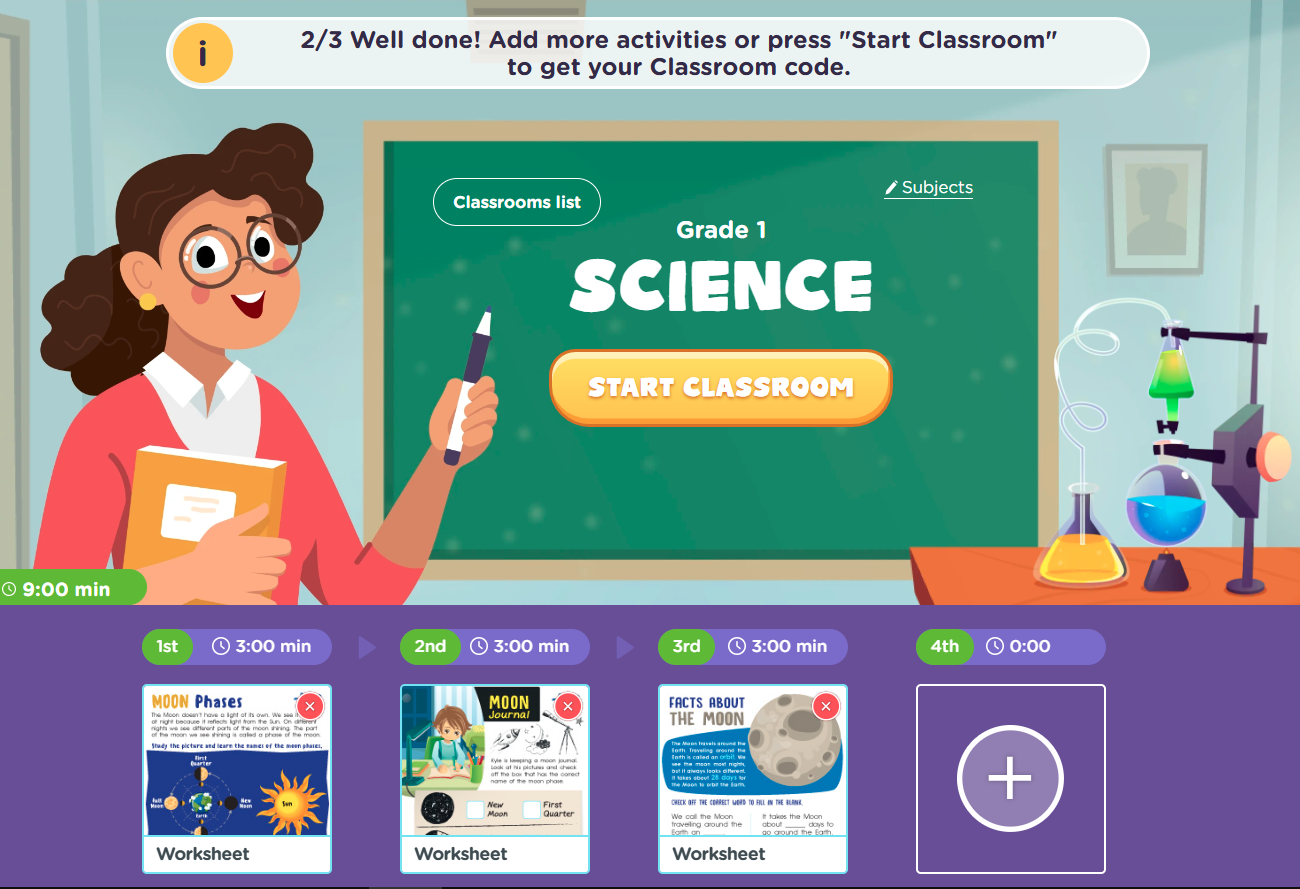
- "Moon Phases" Worksheet: Did you know that the moon doesn’t really emit light? This worksheet requires learners to read about the moon and remember the vocabulary surrounding its phases.
- 'Moon Journal' Worksheet: Help the character Kyle to make sense of his moon journal by deciphering which stage each picture is in.
- 'Facts About the Moon' Worksheet: Learn about how the moon orbits around the earth and how long it takes by reading the fascinating facts on this worksheet!
Extension Activity
Help your learner create their own moon journal. Simply go outside each night before bed and observe the moon. Encourage kids to draw a picture of what they see and identify the phase each day until all the phases have been observed.
We hope today’s lessons gave your child a boost in reading comprehension to find success in every subject. For more learning options, check out the Talented and Gifted Online for an all-in-one learning program for independent learning!


